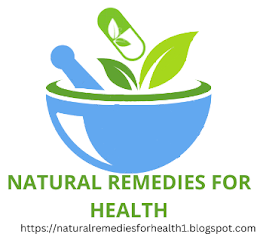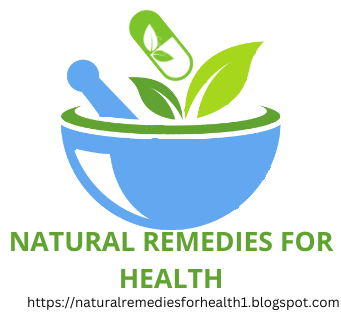Home Remedies for Headaches and Migraines: Natural Ways to Find Relief
Introduction
Headaches and migraines are common ailments that can significantly impact our daily lives. The throbbing pain, sensitivity to light and sound, and overall discomfort can make it challenging to carry out even the simplest tasks. While over-the-counter medications provide temporary relief, many individuals seek natural remedies to alleviate their symptoms and avoid potential side effects. In this article, we will explore a variety of home remedies that can help manage headaches and migraines naturally. So, if you're tired of relying solely on medications and are looking for alternative solutions, read on to discover effective natural ways to find relief.
Understanding Headaches and Migraines
Before delving into the specific home remedies, let's take a moment to understand the difference between headaches and migraines. Headaches are characterized by aching or pressure in the head, often accompanied by tension and muscle tightness. They can be triggered by various factors such as stress, lack of sleep, or dehydration. On the other hand, migraines are intense headaches often accompanied by nausea, vomiting, and sensitivity to light and sound. Migraines can be more debilitating and can last for several hours or even days. It's important to identify the type of headache you're experiencing to choose the most appropriate home remedy.
Hydration: Drink Up for Headache Relief
Dehydration is a common trigger for headaches, so one of the simplest and most effective home remedies is to stay hydrated. Drinking an adequate amount of water throughout the day can help prevent headaches and relieve symptoms if you're already experiencing one. Make it a habit to carry a water bottle with you and aim to drink at least eight glasses of water daily. You can also include hydrating foods in your diet, such as watermelon, cucumbers, and oranges, to increase your overall fluid intake.
Relaxation Techniques: Unwind and Soothe
Stress and tension are major contributors to headaches and migraines. Engaging in relaxation techniques can help reduce stress levels and provide relief from the pain. Deep breathing exercises, meditation, and yoga are excellent practices to incorporate into your daily routine. These techniques promote relaxation, ease muscle tension, and calm the mind. Find a quiet space, close your eyes, and focus on your breath to achieve a sense of calm and alleviate headache symptoms.
Cold Compress: Cool Down the Pain
A cold compress applied to the head or neck can provide immediate relief for headaches. The cold temperature helps constrict blood vessels and reduces inflammation, easing the throbbing pain. Wrap a few ice cubes in a thin cloth or use a cold gel pack and apply it to the affected area for 15 to 20 minutes. Repeat as necessary until the pain subsides. Alternatively, you can use a bag of frozen vegetables if you don't have an ice pack readily available.
Essential Oils: Aromatherapy for Headache Relief
Certain essential oils have soothing properties that can help alleviate headaches and migraines. Peppermint oil, lavender oil, and eucalyptus oil are particularly effective in relieving pain and promoting relaxation. Dilute a few drops of essential oil with a carrier oil, such as coconut oil or almond oil, and gently massage it onto your temples, forehead, or the back of your neck. You can also add a few drops to a diffuser or inhale the scent directly for aromatherapy benefits.
Caffeine: Moderation is Key
While excessive caffeine consumption can trigger headaches, a moderate amount of caffeine can actually provide relief for some individuals. Caffeine can help constrict blood vessels and enhance the effectiveness of pain medications. However, it's important to consume caffeine in moderation and be mindful of your sensitivity to it. Too much caffeine can lead to dependency and potentially worsen your headache symptoms. Stick to one or two cups of coffee or tea a day to reap the benefits without overdoing it.
Ginger: Natural Anti-Inflammatory
Ginger has long been used as a natural remedy for various ailments, including headaches. It contains compounds that possess anti-inflammatory properties and can help reduce headache pain. Ginger can be consumed in different forms, such as ginger tea, ginger capsules, or adding fresh ginger to your meals and beverages. Incorporating ginger into your routine may help alleviate headache symptoms and promote overall well-being.
Adequate Sleep: Rest for Recovery
A lack of sleep or poor sleep quality can contribute to headaches and migraines. It's crucial to prioritize sleep and establish a consistent sleep schedule. Aim for seven to eight hours of quality sleep each night to allow your body to rest and recover. Create a sleep-friendly environment by keeping your bedroom cool, dark, and quiet. Avoid electronics and stimulating activities before bed to promote relaxation and improve your sleep quality.
Frequently Asked Questions (FAQs)
Can home remedies completely cure headaches and migraines?
Home remedies can provide relief and help manage symptoms of headaches and migraines. However, it's important to identify and address the underlying causes of your headaches. If your symptoms persist or worsen, it's advisable to consult a healthcare professional for proper diagnosis and treatment.
Are there any side effects of using home remedies for headaches and migraines?
Home remedies are generally safe when used as directed. However, some individuals may be allergic or sensitive to certain remedies or essential oils. It's always a good idea to perform a patch test or consult with a healthcare professional if you have any concerns or preexisting conditions.
When should I seek medical attention for my headaches or migraines?
If you experience severe, sudden, or persistent headaches or migraines that are significantly affecting your daily life, it's important to consult a healthcare professional. They can help determine the underlying cause and recommend appropriate treatment options.
Can dietary changes help prevent headaches and migraines?
Yes, certain dietary changes may help prevent headaches and migraines. Keeping a food diary and identifying trigger foods can be beneficial. Common triggers include caffeine, alcohol, processed foods, and artificial sweeteners. Avoiding or minimizing consumption of these triggers may help reduce the frequency and intensity of headaches.
Are home remedies safe to use during pregnancy or breastfeeding?
Some home remedies may not be suitable for pregnant or breastfeeding women. It's best to consult with a healthcare professional before using any home remedies to ensure they are safe for you and your baby.
Can stress management techniques help reduce headache frequency?
Absolutely! Stress management techniques such as relaxation exercises, meditation, and yoga can help reduce the frequency and severity of headaches. By practicing these techniques regularly, you can promote overall well-being and improve your body's response to stress.






0 Comments